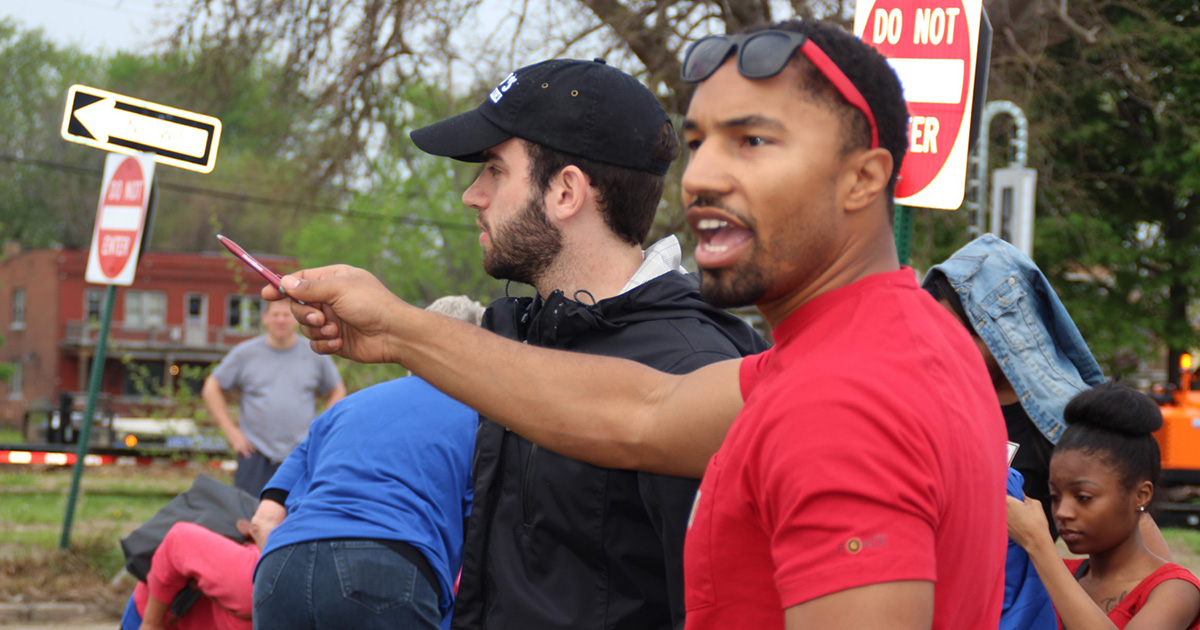Growing up in Detroit, the son of a firefighter and social worker, Adam Hollier was raised to give back. Today, as director of government and community relations at the Michigan Fitness Foundation, he is doing just that.
After graduating from Cornell University, Adam earned a master’s at U-M’s Taubman College of Architecture and Urban Planning. His work experience already includes being vice president at Hantz Farms, a Detroit agricultural project responsible for cleaning up some 50 blighted structures. He also served as chief of staff for Michigan State Senator Bert Johnson, worked as a liaison to the City Council for former Mayor Dave Bing, and even ran for City Council himself.
Michigan Alumnus recently spoke with Adam, who is also a second lieutenant in the U.S. Army Reserve, about his career and vision for Detroit.
What inspired you to become an urban planner?
I spent a summer in Biloxi, Mississippi after Hurricane Katrina. I had been there for spring break with some of my buddies, and just had the feeling I was where I needed to be. I saw people making a difference, who were fixing problems. They were urban planners.
I had a scholarship at Cornell that allowed me to do anything during the summer. I used that to fund my trip back down to Biloxi, where I helped in the recovery effort and lived with a 92-year-old woman, Ms. Burney, for almost six months. I saw so many similarities between Biloxi and Detroit, but I saw different responses to the challenges. In Detroit, there was an idea that because it took 40 or 50 years for the problem to happen, it was going to take similarly long to correct the problem. That’s when I decided to become an urban planner.
Was there someone at U-M who especially helped you on this path?
I would say Prof. June Manning Thomas. She challenged me to think, truly, about the social ramifications of all development actions and community engagement, particularly from a planning standpoint. It is important to talk to folks about the real, deep-seated issues and listen to different perspectives. Her knowledge was critical for me.
How did you get involved with Hantz Farms?
While I was working with Mayor Bing in 2012, I was on the periphery of urban development efforts. Then I met Mike Shore, the president of Hantz Farms. I helped them in the communities and really appreciated that they were trying to do something unique in the city. This was a project, fully funded by a Detroiter, John Hantz, who has lived in Detroit for the past 20-plus years.
After my unsuccessful run for City Council, they asked me to help them get the project off the ground. At Hantz Woodlands (another project under the Hantz Group), we bought run-down properties from the city and made the commitment to fund the demolition of vacant structures.
participated in Hantz Woodlands Planting Day 2014. Full video available here.
It costs $17,000 to demolish one home, and you multiply that by 50 and that’s almost a million-dollar investment. Then you think about all the decrepit homes across the city causing people problems. Just getting water and utilities disconnected can take as much as six months…and we got all 50 structures disconnected and demolished within six months. With the help of volunteers and partners, we cleaned up the land, cut the grass, planted trees, and made it look clean. The neighbors were excited.
How did you end up in your current job at the Michigan Fitness Foundation?
I enlisted in the army in August 2016. For the better part of last year, I was on active duty. I went to Basic Training, Officer Candidate School, and took the Basic Officer Leadership Course, earning my commission. Now I am a second lieutenant in the Army Reserve.
I took that time to achieve my own set of obligations, which I am continuing to do now at the Michigan Fitness Foundation. We are working on Iron Belle Trail, creating safe areas for schools, and pedestrian-and-bike friendly areas for the communities. My goal is to help people get their projects done.
As an urban planner, what concerns you most about Detroit?
There’s a big misconception that there is all this property that people aren’t taking care of. What’s missed is that people are taking care of their stuff. The problem is, there’s all this other stuff—vacant homes, abandoned property, an abandoned environment left for dead. But right next to it, you might find a home that an old lady has cared for immaculately. Like in Biloxi, Ms. Burney’s grass was perfectly maintained, her garden was immaculate, her house perfectly cleaned, but she had the same situation.
I have a chance to show people that there is hope, and that solutions are possible. It may not be doable at the same scale as Hantz Farms, but the neighborhood can fix these problems. People should try all the crazy and different ideas they have, because some of them will be successful. Maybe one will stick. That one solution might not be the solution, but Detroit is a place where solutions are possible and there are people committed to making you successful.
Gregory Lucas-Myers is assistant editor of Michigan Alumnus magazine.





